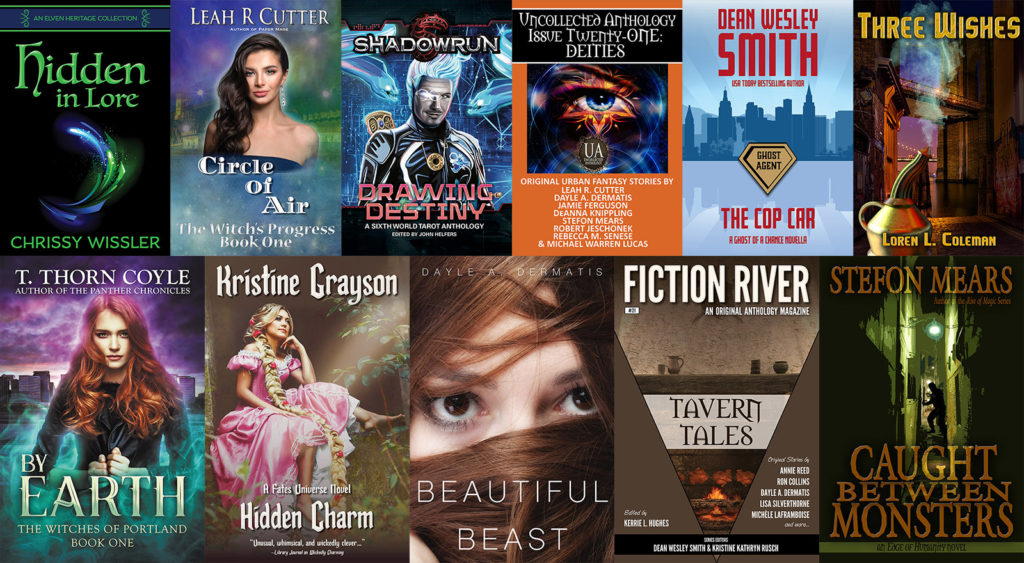Forbidden Knowledge
I love magic. Even as a kid at the bookstore or library, I judged fantasy novels by whether or not they had wizards in them. Preferably on the cover, but at least in the back cover blub.
Once I got my choices home, my favorite characters were inevitably those with some magical might to sling about. Even if they relied more on their swords than their sorcery — *cough* Elric *cough* — that didn’t matter to me. Their magic took those stories soaring in my imagination.
To continue with Elric, to give you an example. Yes, he relied heavily on Stormbringer. But he also dealt with elemental kings, sailed aboard the Ship Which Sails Over Land and Sea, and freaking rode dragons.
Riding dragons was always a plus for me. Still is, for that matter, but that’s another topic.
Part of the reason that the Myth Adventures series by Robert Lynn Asprin drew me in as a young reader was that it combined good humor with great magic. And hey, the main character was an apprentice, learning magic through the course of the books.
When I was a young teen, Skeeve was my Harry Potter. Even if he didn’t have a Hogwarts.
As I later came to discover and fall in love with urban fantasy, magic was a major part of the draw. Diana Tregarde. Early Anita Blake. Harry Dresden. Magic I could sink my teeth into.
But as I read more and more urban fantasy, I found myself wondering something.
What about the humans?
These are worlds in which the supernatural isn’t just real, its active and in your face. In some of these worlds, it’s even got the vote. And the stories all focus on supernatural characters. Wizard detectives, skinwalker auto mechanics, werewolf radio hosts, and on and on.
But the main characters were never plain old, nonmagical humans.
Oh, sure. Every one of these stories featured “normal” humans, but only in secondary roles. Friends in the police department, or reporters, or mob bosses, or something along those lines.
The focus of the stories was always on those who had supernatural powers to aid them.
Which made me wonder again, what about the humans?
What about, say, a human with no powers to aid him? A human who got stuck, indebted to someone he later found out was a monster. Not a metaphorical monster, but a real, straight-out-of-myth-and-legend monster.
What would life be like for this guy? How would he survive? Was he just marking time until his inevitable death? Or could he be clever enough and resourceful enough to not just survive today, but find a way to escape his doom?
The idea fascinated me. But if I started writing it, I knew that magic couldn’t be his escape hatch. That would be cheating.
So magic, my beloved magic, would have to be the enemy. It would have to be an inherently corrupting force. Something that would drain the humanity of those who called on it, until they were no longer truly human.
I found the idea curiously appealing. Because it meant that my poor, stuck human had to be that much cleverer. That much more cunning. He had to be smarter, because if he cheated, he’d become a monster himself. No better than the thing he served.
Thus, I conceived of Roland, the main character of Caught Between Monsters. A man stuck working for a monster, trying to survive and get out from under its claws.
If you’re curious to read a novel in which magic is evil, written by a man who loves magic deeply, Caught Between Monsters is part of a StoryBundle right now. You can check it out, along with ten other novels. All for one low price, and you’ll be helping a worthy cause in the process. You can either click here or on the image below to go see the bundle.
Oh, and the book also includes demons, fae, an ancient horror, a secret society, and an old Norse contest of wisdom in a very modern hotel room.
Caught Between Monsters is also the first book of the Edge of Humanity series, an intermittent series of standalone novels linked by the theme of normal humans stuck dealing with the supernatural.


